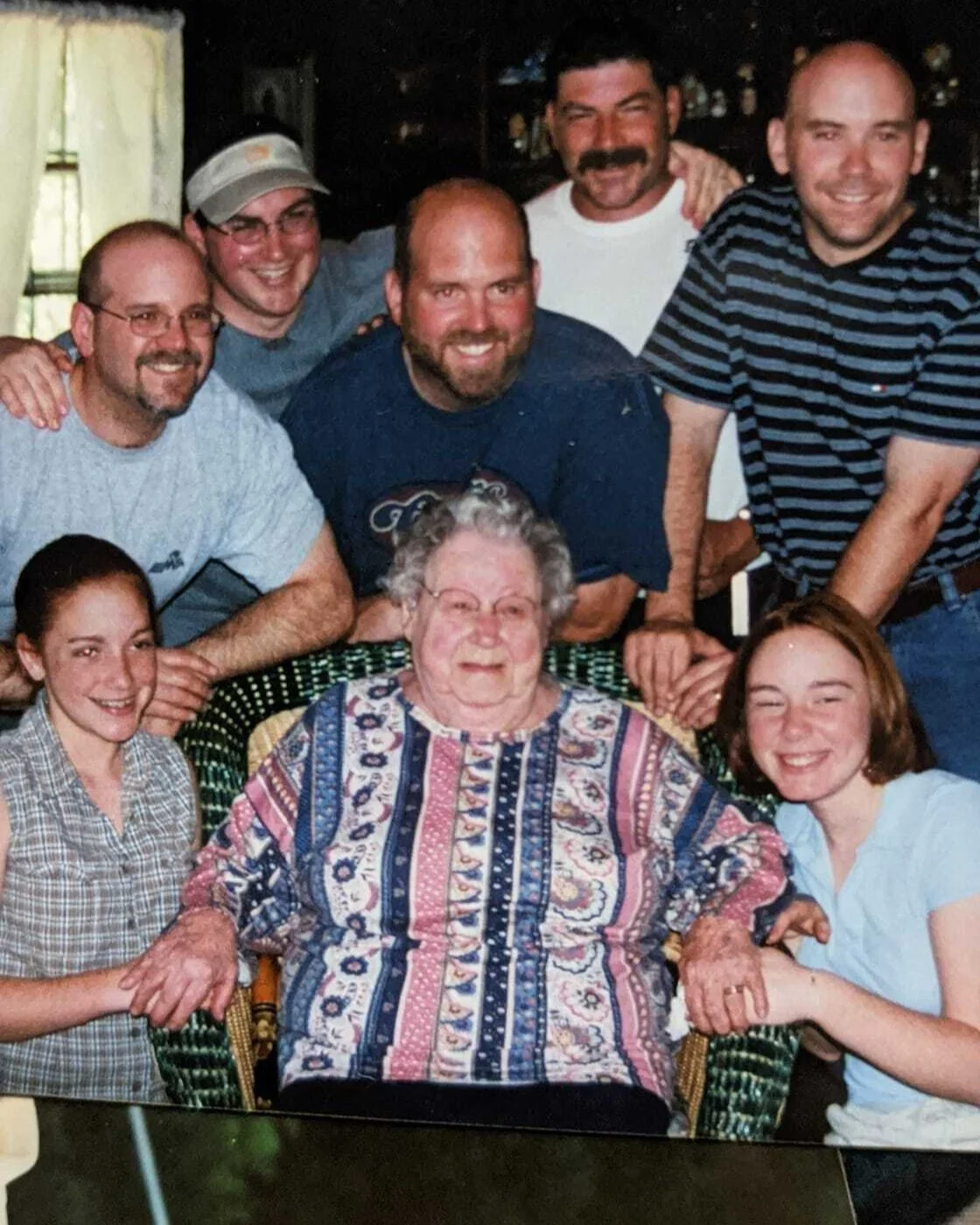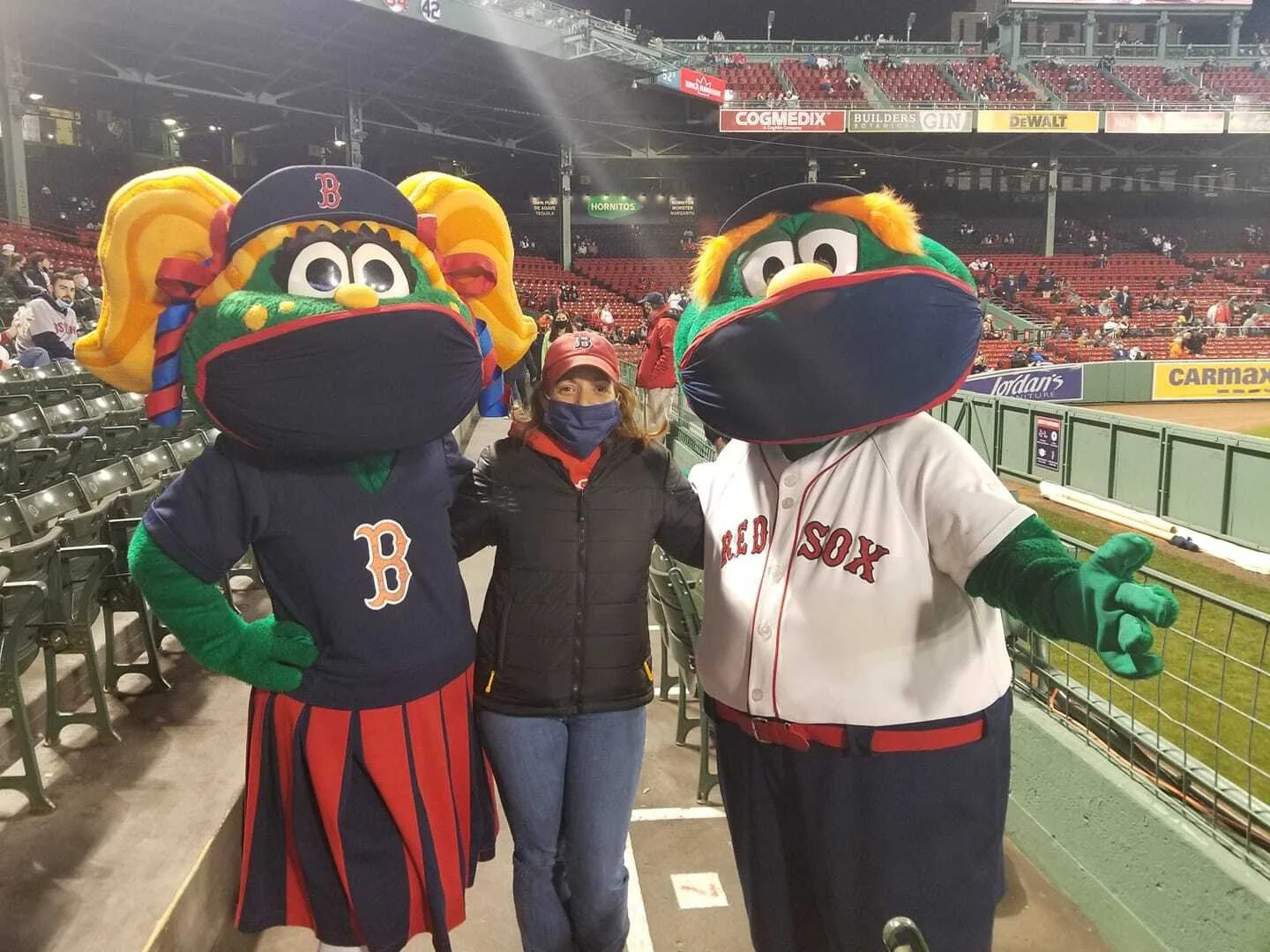GET TO KNOW NIKKI:
A Q & A WITH EVERYDAY BOSTON’s NEW EXECUTIVE DIRECTOR
Last month, we introduced you to our new Executive Director, Nikki Shults, who joined Everyday Boston after a decade leading Little Brothers-Friends of the Elderly (Boston).
We’re so excited to have her here!
Check out this Q & A with Everyday Boston’s Founder and now Creative Director Cara Solomon- and don’t miss the more personal pictures from Nikki’s life outside of work at the end of the interview!
Cara:
You grew up in a small town in rural Connecticut. How did that shape your idea of community?
Nikki:
Well, my grandparents were farmers and everyone in the family lived within a few hundred yards from each other- my mom, her two brothers, and my grandmother in the middle. Our closest neighbor was a drive away. And so we had a really tight-knit community. Anytime anyone needed anything, we'd just go next door: two knocks, and you walk in.
That was especially important for my grandmother. She was widowed for over 40 years, but she was never lonely.
Eventually the small town was a little too small and a little too conservative to keep me. But one thing it really impressed on me is the power of community and being there for each other.
Cara:
And that’s what Everyday Boston is about. Can you say a bit more about what drew you to this role?
Nikki:
The thing that literally keeps me up at night is the level of loneliness in the country today. People don't talk to each other anymore. A lot of people are working from home and are in this social media bubble. The world is getting scary and small in that way.
I’d worked with you through the Massachusetts Coalition to Build Community and End Loneliness, I’d already experienced a story share, and I loved the work Everyday Boston was doing. It’s really answering that question of how to bridge gaps and how to help people talk to each other.
So when I saw the posting, I applied immediately. And with every interview, I just got more and more excited.
The final interview with community members was the most engaging–it was just so apparent how much people care about this organization and how it reaches and touches people in such a unique way.
Cara:
It’s such a gift!
One thing I now know about you–apart from your crazy love of Wally, the Red Sox mascot (see picture below)–is that you really enjoy the building stage of nonprofits. Looking back on your time as Executive Director of LBFE, what are you most proud of?
Nikki:
I do love building! When I started at LBFE, it was in a similar place to where Everyday Boston is now, in that it really needed to develop some structures and procedures, and the business side of the organization. The budget was about $350,000 then, and now it’s $1.2 million. So that was exciting to do with the team.
But the thing that I'm most proud about is that we restructured all of our programs with a lens towards equity. By the end of my time there, LBFE was doing programs in just about every neighborhood in Boston, and in eight different languages. And we had moved our programs to community spaces where older adults were already living. It took away so many barriers to access. As a result, we were able to engage many more older adults and brought in an intergenerational lens as well.
Cara:
I love that. So what’s an important lesson you learned during that time of growth?
Nikki:
When we started all these new programs, one of the things we took really seriously was developing a monitoring and evaluation system that focused on getting input from folks in our programs– both the older adults and the college students working with them. And we learned a lot of the assumptions we made were just not right. A lot of our best program ideas came from the people in the programs.
So as a result, we started doing things like having program advocates in each building who would go around and talk to their neighbors about our program. Because that was the way to get people to show up. Not because we gave out flyers, not because we invited them, but because a neighbor invited them.
And so the lesson learned there is that people know what they need more than organizations know what people need. It's just so important to have that community voice.
Cara:
I couldn’t agree more. One thing you and I have in common is a laser-like focus on the power of human connection. Have you noticed that, post-pandemic, this is finally getting the widespread attention it deserves?
Nikki:
Yes, and it’s long overdue. The U.S. Surgeon General put out a report last year about the loneliness epidemic and how bad it is for our mental and physical health to not have those connections in the community. Post-pandemic, there's been a ton of research about the impact of connecting in those third places, like the barista you see every day in the cafe, or the person that's always on the same bus as you, that you at least nod to and say hello.
Those small connections are what make you feel like a part of a community and that you belong there. And what I love about EB is that our programming offers opportunities for both those deeper connections and for those fleeting ones that are also meaningful.
It’s been so great to see the desire for this kind of work- even among colleagues I’ve had a hard time engaging in the past. The minute that I explain EB, they’re like: “Wow, I can use that at my organization,” or “I'm gonna bring that to the union!”
People are just super excited to know that Everyday Boston exists and that now they've got a way in.
Cara:
On that note, one last question: What do you want to see happen with Everyday Boston in the next few years?
Nikki:
I think right now we fall into the category of a best-kept secret in Boston. The next few years, I’d like to see us everywhere. Our vision is to make Boston the most connected city in America, so we need to focus on scaling our successful programming in every sector of the city- schools, workplaces, prisons, nonprofits–and customizing it for these different settings, as we’re already starting to do.
I want to see us build out our earned income revenue stream. It’s clear there’s a real appetite for our Curiosity and Connection programming in workplaces, particularly for communities that are trying to strengthen a sense of belonging. I also want us to structure a volunteer program that activates Bostonians and others to help us build the movement.
And on the programming end, I know you’re excited about developing a youth story ambassador corps, expanding our intergenerational programming, and of course, building out The Bridge Project.
So lots of exciting things ahead.
I want to put a call out to anyone who wants to partner with EB, or connect us to funders or other opportunities, or lend your expertise and consider joining our Board of Directors: Please email me! I’d love to meet you.
SOME OF NIKKI’s FAVORITE PEOPLE
Memere
Memere, at the center, was Nikki’s grandmother. They played cards together and watched bowling on TV. Nikki, at left, considers Memere the main reason she went on to study gerontology and lead a nonprofit focused on alleviating isolation for elders.
RICHARD
Richard started out as a skeptical client at LBFE, convinced the programming would never work. He turned into a good friend, Scrabble partner, and weekly lunch date.
WALLY
Since she moved to Boston, Nikki has been officially obsessed with Wally, the Red Sox mascot. Her husband makes fun of her ability to sense Wally’s presence even before he comes into view.




